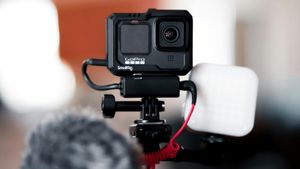After much speculation dominating NBA headlines, the Jimmy Butler trade saga has reached its zenith with the renowned forward’s move to the Golden State Warriors. The transition places Butler within the warrior ranks and signifies the culmination of what has been categorized as one of the most dramatic trades of the season.
The deal, described by numerous sources including ESPN's Shams Charania, is multifaceted, involving not just the Warriors and Butler’s former team, the Miami Heat, but also the Detroit Pistons and the Utah Jazz. The trade is structured so the Heat will acquire forwards Andrew Wiggins from Golden State and P.J. Tucker from Utah, as well as a first-round draft pick for 2025 with protections for the top-10 selections.
This significant trade is seen as Miami's strategic move to realign their team amid Butler's exit, after his frustrations and disputes with the Heat management reportedly reached their peak. Miami will also see the departures of Lindy Waters III and Josh Richardson headed to Detroit, with Utah receiving Dennis Schroder from the Warriors, who had been pivotal for them.
For Butler, 35, this transaction is not merely about changing uniforms; it signals hope for rejuvenation alongside Warriors star Stephen Curry. Butler expressed excitement about joining Golden State and accepted a two-year contract extension worth $121 million, thereby securing his future with the franchise until the end of the 2026-2027 season. Butler stated, "I’m happy to be back playing basketball. The team I’m going to has such great talent. I will do everything I can to help the Warriors win and achieve something special." This commitment is viewed as the Warriors assembling their roster with renewed vigor, aiming to reclaim dominance after falling short last season.
Butler's past with teams has been tumultuous, which undoubtedly adds layers of complexity to the narrative surrounding his trade. Historically, Butler has been known to clash with management and players, leading to dramatic exits from previous franchises. For example, his infamous fallout with the Minnesota Timberwolves saw drama play out to the public eye before his trade to Philadelphia. The sentiment echoed during his time with the Sixers, culminating with his free agency decision to join the Heat.
Trade analyst DeMarcus Cousins commented on the recent trade, stating, "Pat Riley met his match. Jimmy won this duel. I don’t think Pat got the best deal he could have for Jimmy." This perspective could signal doubts about Miami's ability to recoup significant value from the trade, especially considering Butler's established strengths.
The ramifications of this trade stretch beyond the immediate player exchanges. Observers are now curious about Butler’s role within the Warriors and how he will mesh with Curry, who has already established himself as one of the league’s greatest players. The dynamic could yield potent results; Butler's tenacity paired with Curry’s sharpshooting offers Warriors fans exciting possibilities for the next season.
For Miami, replacing Butler’s production is no small feat but acquiring Wiggins, who has shown potential as both a scorer and defender, could be key to their aspirations. Addressing their needs, the Heat leadership hopes Wiggins can fill the void and contribute to their competitiveness within the Eastern Conference.
Following this high-stakes deal, the league's other teams are observing closely as Miami retools and Golden State reloads with fresh ambitions. The face of the franchise has shifted, and fans are left speculating what lies next for Butler, the Heat, and the Warriors.
The excitement of this trade, marred by Butler’s storied past, signifies not just the ambitions of franchises but also the capsule of competitive spirit echoed throughout the league. It reiterates the delicate balance of player management, competitive longevity, and the relentless pursuit of championships.



